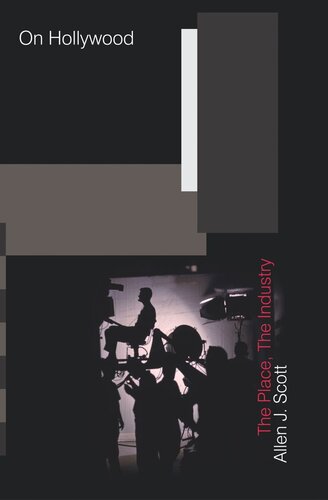

Most ebook files are in PDF format, so you can easily read them using various software such as Foxit Reader or directly on the Google Chrome browser.
Some ebook files are released by publishers in other formats such as .awz, .mobi, .epub, .fb2, etc. You may need to install specific software to read these formats on mobile/PC, such as Calibre.
Please read the tutorial at this link: https://ebookbell.com/faq
We offer FREE conversion to the popular formats you request; however, this may take some time. Therefore, right after payment, please email us, and we will try to provide the service as quickly as possible.
For some exceptional file formats or broken links (if any), please refrain from opening any disputes. Instead, email us first, and we will try to assist within a maximum of 6 hours.
EbookBell Team

4.1
30 reviewsWhy is the U.S. motion picture industry concentrated in Hollywood and why does it remain there in the age of globalization? Allen Scott uses the tools of economic geography to explore these questions and to provide a number of highly original answers. The conceptual roots of his analysis go back to Alfred Marshall's theory of industrial districts and pick up on modern ideas about business clusters as sites of efficient and innovative production.
On Hollywood builds on this work by adding major new empirical elements. By examining the history of motion-picture production from the early twentieth century to the present through this analytic lens, Scott is able to show why the industry (which was initially focused on New York) had shifted the majority of its production to Southern California by 1919. He also addresses in detail the bases of Hollywood's long-standing creative energies and competitive advantages. At the same time, the book explores the steady globalization of Hollywood's market reach as well as the cultural and political dilemmas posed by this phenomenon.
On Hollywood will appeal not only to general readers with an interest in the motion-picture industry, but also to economic geographers, business professionals, regional development practitioners, and cultural theorists as well.